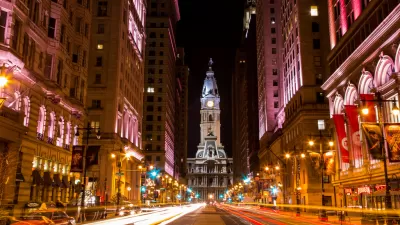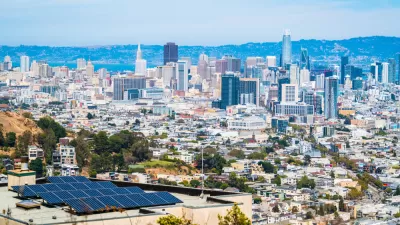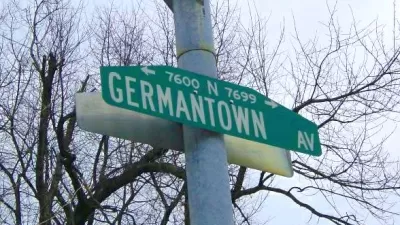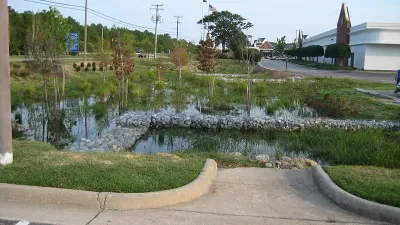A Philadelphia councilmember has proposed a seemingly esoteric bill that would amend the city code to give individual councilmembers new power in the planning process.

Jon Geeting reports: "A new bill from 10th District Councilman Brian O’Neill could write councilmanic prerogative into the city’s routine planning procedures…by shifting power over property subdivisions that the city charter specifically reserves for the Planning Commission to the discretion of District Councilmembers."
As Geeting explains, "councilmanic prerogative" affords Philadelphia councilmembers "total authority over land use and development matters within their own districts." The Pew Research Center and PlanPhilly have even studied the effect of councilmanic prerogative, finding significant powers to decide issues of city-owned property, zoning, zoning variances, and even street design.
The O'Neill bill would create even more political space for councilmanic prerogative to operate in Philadelphia, especially as a response to the city's 2012 zoning reform process (which would, in theory, allow more development by-right and fewer opportunities for council involvement. The proposed bill would amend the section of the city code governing subdivisions and plats, "[marking] the first time councilmanic prerogative would be written into the city’s standard planning procedures."
FULL STORY: O'Neill bill would codify councilmanic prerogative in subdivision process

Manufactured Crisis: Losing the Nation’s Largest Source of Unsubsidized Affordable Housing
Manufactured housing communities have long been an affordable housing option for millions of people living in the U.S., but that affordability is disappearing rapidly. How did we get here?

Americans May Be Stuck — But Why?
Americans are moving a lot less than they once did, and that is a problem. While Yoni Applebaum, in his highly-publicized article Stuck, gets the reasons badly wrong, it's still important to ask: why are we moving so much less than before?

Using Old Oil and Gas Wells for Green Energy Storage
Penn State researchers have found that repurposing abandoned oil and gas wells for geothermal-assisted compressed-air energy storage can boost efficiency, reduce environmental risks, and support clean energy and job transitions.

Updating LA’s Tree Rules Could Bring More Shade to Underserved Neighborhoods
A new USC study finds that relaxing Los Angeles’ outdated tree planting guidelines could significantly expand urban tree canopy and reduce shade disparities in lower-income neighborhoods, though infrastructure investments are also needed.

California's Canal Solar Projects Aim to Conserve Resources and Expand Clean Energy
California’s Project Nexus has begun generating electricity from solar panels installed over irrigation canals, with researchers and state agencies exploring statewide expansion to conserve water and boost clean energy production.

HHS Staff Cuts Gut Energy Assistance Program
The full staff of a federal program that distributes heating and cooling assistance for low-income families was laid off, jeopardizing the program’s operations.
Urban Design for Planners 1: Software Tools
This six-course series explores essential urban design concepts using open source software and equips planners with the tools they need to participate fully in the urban design process.
Planning for Universal Design
Learn the tools for implementing Universal Design in planning regulations.
Heyer Gruel & Associates PA
City of Moreno Valley
Institute for Housing and Urban Development Studies (IHS)
City of Grandview
Harvard GSD Executive Education
Salt Lake City
NYU Wagner Graduate School of Public Service
City of Cambridge, Maryland





























